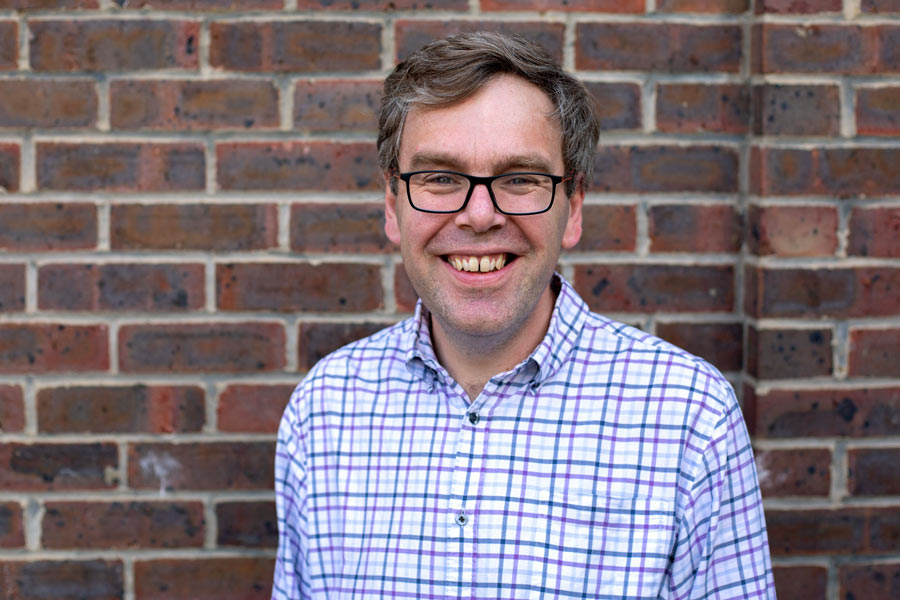Anvil journal of theology and mission
Editorial: Church: Inside Out? | ANVIL vol 35 issue 3
by James Butler
This issue of Anvil began life as a CMS Pioneer Conversations day back in March of this year, exploring church and mission. The questions around “What is church?” and identifying whether something “is church” are well rehearsed and many innovative and helpful things have been written, but the reality is that these questions remain pertinent to those working in fresh expressions and pioneer ministry. The title of the conversations day, and of this issue, “Church: Inside Out?”, was an attempt to raise some of these questions in a fresh way.
All the contributions to this issue push us to reconsider our understanding of church and suggest that the church, and certainly the work of the Holy Spirit, goes beyond our carefully drawn lines and our own expectations. This is certainly the experience of many of our pioneers at CMS: that as they follow the Spirit’s work, they realise that the church has already been turned inside out, and their work, as John Taylor eloquently told us 50-odd years ago, is about joining the Holy Spirit in mission.
A key voice in encouraging this pioneering gift has been Pete Ward. He was a contributor to our conversations day, and although he has not directly contributed to this issue of Anvil, his suggestion of a liquid church has been an important one for pioneers exploring the ideas of church. I have reviewed his more recent book, Liquid Ecclesiology, in this issue, and I suggest that the examples given here, particularly in the work of Sue Steer, Christine Dutton, and Tim Nash with the Nomad podcasts, all reflect this liquid nature of the church in the world and offer important theological insights about church. I will introduce each contribution in turn with a view to how they fit into this bigger question of “Church: Inside Out?”
Our two long articles are by the two keynote speakers at the conversations day. Stefan Paas asks whether, in our move to turn the church “inside out”, we may still be carrying significant colonial and Christendom assumptions about the purpose of mission. He suggests that the “why” of Christian mission is a far more pressing and important question than most people realise. His suggestion is a move away from an instrumentalised view of mission to one that is more creative and worshipful, and less individualised.
Clare Watkins brings a different perspective as a Roman Catholic theologian who is particularly interested in the theology of the church. An outsider to the pioneer conversation, she both encourages and challenges those involved in pioneering and fresh expressions. She identifies the way these dynamic examples of mission within pioneering and fresh expressions are a gift to the church and something the established structures find hard to do.
What she questions is how pioneers know this is what God is doing, and she turns to the role of the prophetic and practices of discernment to help. Her concluding observation of an institutional church with a small centre and a large periphery will be appealing to many.
Jonny Baker and Tim Nash offer quite a different contribution. Through a conversation they explore the Nomad podcast, which Tim began over ten years ago, tracing the ways that it has developed into an online, and in some places physical, community. They reflect on the ways that this has become church, or something church-like, for many, making some interesting observations and developing some innovative ideas around the theology of church. As with most conversations this doesn’t reach neat tidy conclusions, but offers some metaphors, insights and questions that anticipate the conversation continuing in your own communities and friendships.
As always with Anvil, there are some shorter articles more focused on the particular experiences and practices of church and pioneering. Tina Hodgett reflects on Scripture and her own experience working with congregations in Bath and Wells to playfully explore how the accounts of childless women in the Bible open up new metaphors to help us to reflect on church arriving somewhere surprisingly hopeful.
Christine Dutton offers a reflection on knitting as a way of turning the church “inside out”, one that not only encourages approaches to evangelism and care, but also encourages the kinds of spiritual and reflective practices that are important in Christian faith. She draws out particular examples of the way knitting encourages the prophetic, porous and relational church that Clare Watkins and Stefan Paas are calling for in their articles. Similarly, Sue Steer’s reflections on her own experience of being a pioneer community worker as a new town forms around a tiny village demonstrates this more porous and relational understanding of the Christian community. By engaging with the fresh expressions models of mission and focusing primarily on building community, she saw how church formed and grew, and she encourages us to recognise and embrace pivotal moments in the journey.
Finally, Ed Olsworth-Peter points to the importance of the “where” of pioneer ministry and explores how people relate to their context. By discussing “dwelling patterns” of pioneer ministry, he shows how bringing these into a wider framework of the “pioneer charism” can be helpful for pioneers and for those encouraging pioneers to think carefully about where to start, the importance of partnerships and managing expectations.
We have a large collection of book reviews around the subject of mission and church, which provide some good avenues to engage further with these innovative ideas. I hope that this issue will be a helpful and stimulating way for you to reflect again on church and mission.

About the author
James Butler is pioneer MA lecturer and assistant coordinator for Pioneer Mission Leadership Training at Church Mission Society. He teaches in the areas of mission, ecclesiology and practical theology. His PhD explored how small missional communities sustain their social action. He also works as a postdoctoral researcher at the University of Roehampton, researching themes of learning, discipleship and social action.